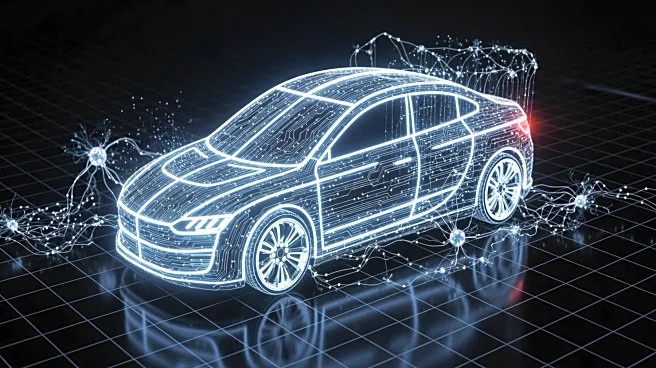What's Happening?
Tesla's Vice President of AI Software, Ashok Elluswamy, has informed staff that 2026 will be a challenging year as the company pushes forward with its Optimus robot production and Robotaxi service expansion.
The announcement was made during an all-hands meeting, where aggressive timelines were set for both projects. Tesla aims to have more than a thousand ride-hailing vehicles on the road by the end of 2025 and plans to start production of the Optimus bot toward the end of 2026. Elon Musk's compensation package is tied to the success of these initiatives, which include deploying 1 million Robotaxis and humanoid robots.
Why It's Important?
The ambitious goals set by Tesla highlight the company's commitment to advancing autonomous technology and robotics. Success in these areas could significantly impact Tesla's market position and valuation, potentially making Elon Musk the world's first trillionaire. The focus on AI and robotics reflects broader industry trends towards automation and artificial intelligence, which could reshape various sectors, including transportation and manufacturing. However, the intense workload and aggressive timelines may pose challenges for Tesla's workforce, potentially affecting employee morale and retention.
Beyond the Headlines
Tesla's push for autonomous technology raises ethical and regulatory questions, particularly regarding safety and job displacement. The deployment of Robotaxis and humanoid robots could lead to significant changes in labor markets and urban environments. Additionally, the reliance on AI and automation may prompt discussions about the ethical implications of machine decision-making and the need for robust regulatory frameworks to ensure safety and accountability.









